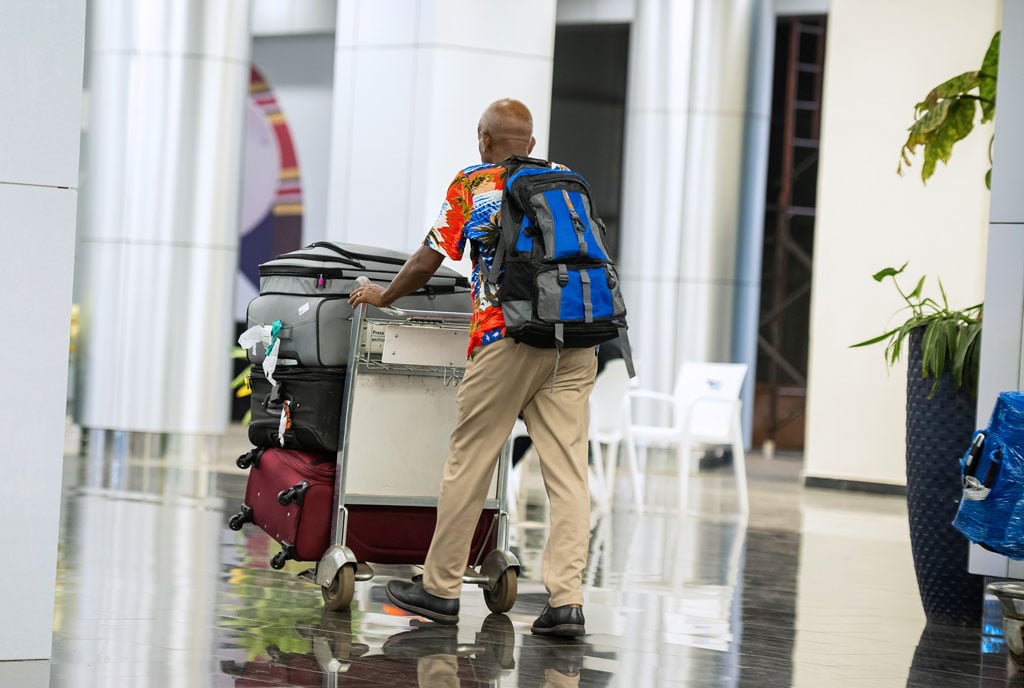Prime
Westgate Shopping Mall attack: Many lessons and questions

A woman injured during the Westgate Mall attack is taken into an ambulance. The terrorists killed more than 60 people. PHOTO BY AFP
Shortly after midday on Saturday, September 21, 2013, gunshots and grenade explosions rang out at the Westgate Shopping Mall in Westlands, in the Kenyan capital, Nairobi.
The Israeli-owned Westgate, the largest shopping mall in East Africa, was under attack from a group of terrorists reported to be anything from 15 to 18 in number.
The attack on Westgate made global news. Several victims and survivors were nationals from many parts of the world.
Kenya itself is a kind of “West-gate”. It is the most Western-leaning country in East and the Horn of Africa, a gateway to western media, intelligence, business, tourism and travel and logistical interests in East Africa.
It was the top world news story from Sunday, September 22, until Thursday September 26.
Kenyans, shocked by the attack, rushed to donate blood and raise money to help with the effort using an M-pesa mobile phone line. There was a show of “we are one” national unity and defiant statements that the terrorists had “failed to divide us”. However, many of us are all too familiar with human nature. Even in moments of tragedy and trial, the tendency is to posture, to want to be seen, to extend our social pretentions into bereavement.
On the night of the first of three days of national mourning for the Westgate victims, gunmen attacked the town of Wajir, 490km northeast of Nairobi, set off grenades and opened fire with automatic rifles.
Three people were confirmed dead. At dawn, the following morning, there was another gun attack in another eastern town Mandera.
It became immediately noticeable that the Wajir and Mandera attacks were getting noticeably less real-time coverage from the Nairobi-based media than had been the case with Westgate.
Once again, social media displayed its inadequacies.
Ever since the Iranian election of June 2009, Western news media, commentators and academia have tried to create the impression that social media is a revolutionary new medium that either complements mainstream, traditional news gathering and editing or even beats traditional media to it, especially during emergencies and fluid situations.
I have so far not seen much evidence of this. Social media is an echo chamber of the mainstream media. Without traditional media, social media at best would be a kind of drinking joint where tipsy patrons exchange gossip about the news.
Like Facebook, Twitter is a case of a huge global network but with so much waste and quantity over quality.
Every minute during the crisis, about 40 tweets on Twitter would come in on the situation at the mall.
They were nearly all re-tweets of others’ tweets or of newspaper reports and the newspaper and TV reports, in turn, were repeats of the wire service reports by the Associated Press, Reuters or France’s AFP.
One had to go through about 2,000 tweets before coming across a single one giving original, on-the-scene or informed updates on the attack.
Speaking of mainstream media, even it was found to be wanting. What it gave the public was live TV reporting and video footage, photographs and a few interviews with survivors and witnesses.
Who carried out the attack? The initial police reports spoke of common thugs. As the determination of the attackers became evident, it became clear that this was a kind of coordinated terrorist attack.
Nobody had yet claimed responsibility, but a few fingers were pointed at the Somali militant group al-Shabaab.
As soon as al-Shabaab claimed responsibility for the attack on Sunday, after first being ambiguous or even appearing not to know what was going on (as it was with the July 2010 bomb blasts in Kampala), al-Shabaab’s claims were taken as verified truth.
It could well be true that this was al-Shabaab, but it is equally possible that it was not.
Al-Shabaab are under pressure on the battlefield from African peacekeeping troops. They have an interest in trying to appear capable of carrying out a daring strike in the capital of one of their adversaries.
If al-Shabaab was organised enough to plan and carry out such a daring attack right in the heart of Nairobi, it could have also done more than issue that claim to the Qatari satellite TV channel Al-Jazeera.
In addition to blaming Kenya for sending troops to Somalia, it could have issued, to a number of media houses, a number of other demands, such as freeing detained al-Shabaab fighters.
The Twitter handle said to be run by al-Shabaab boasted about being in touch with the “Mujahedeen” attackers inside Westgate. That sounded odd.
Any experienced militant group operating in 2013 would know that the best way to betray one’s location is to communicate by cell phone or radio, during an ongoing operation. Such an operation requires strict radio and phone silence.
Clearly, al-Shabaab was not telling the truth about being in touch with the attackers, which in turn leads some like me to question if the attack really was by al-Shabaab.
Then, it could be by al-Qaeda, as Israeli intelligence and Kenya’s Foreign minister Amina Mohammed separately said.
There are frequent reports that al-Shabaab and Nigeria’s Boko Haram are in an alliance with al-Qaeda. Certainly they are of one mind as far as ideology and the carrying out of drastic attacks are concerned.
But in terms of operations, al-Qaeda, which has already lost its inspirational leader Osama Bin Laden and several of his top lieutenants to US counterterrorism assaults, is extra careful these days in maintaining protective security.
It is not likely to carry out joint attacks with Boko Haram or al-Shabaab where the chances of infiltration or amateur handling of an operation increase.
If anything, al-Qaeda is now more inclined to work in much smaller cells than before, not get into broad alliances.
Very few people, in addition, thought of other actors such as the Mombasa Republican Council, a radical political group founded at the Kenyan coast, which in recent years, has been advocating cessation from Kenya and forming an independent, Islamist state.
It could even be done by a mafia inside the current Kenyan government in order to create such a new and urgent situation of state and regional security, that even the International Criminal Court at The Hague makes a political decision to drop charges against President Uhuru Kenyatta and Deputy President William Ruto.
After all, if these two politicians and others are at The Hague for allegedly masterminding the six weeks of ethnic clashes that followed the December 2007 general elections, what would stop them or some of their operatives from staging an attack on the Westgate Mall?
Also, it must be borne in mind that in November 2002, two missiles were fired at a private Israeli plane taking off from the Moi International Airport in Mombasa and that same day, a bomb blew up the Israeli-owned Paradise Hotel, also in Mombasa.
That Westgate was Israeli-owned would open the possibility that Israeli interests were under attack at Westgate.
All told, the Westgate attack has added to the international perception that Kenya, while still stable, is no longer the tropical paradise like Mauritius or the Seychelles that it once was in the 1970s.




